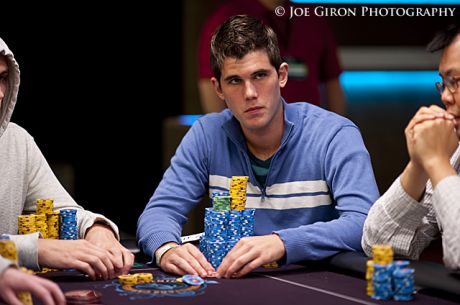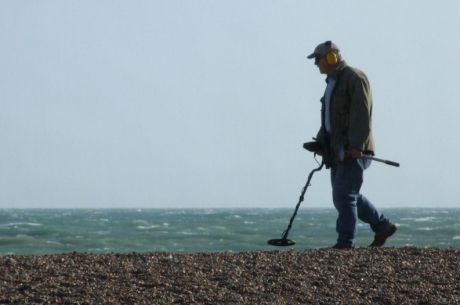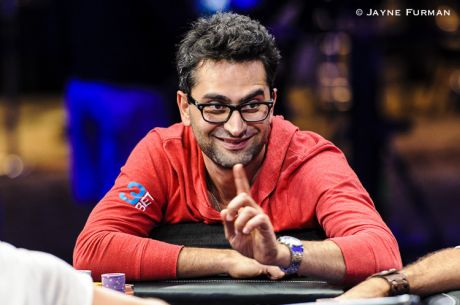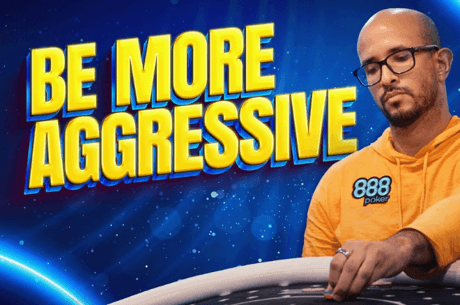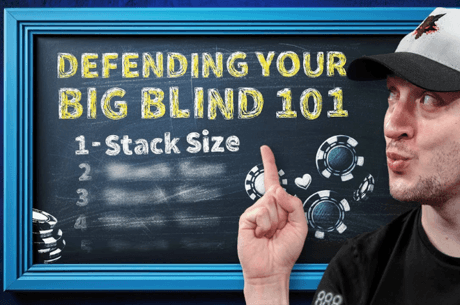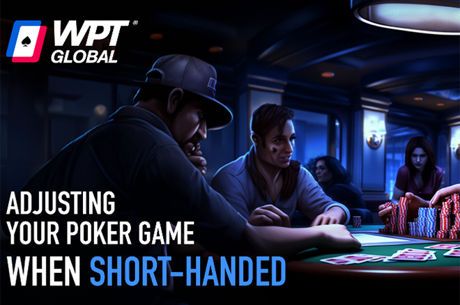Advice from Alex “Assassinato” Fitzgerald, Vol. 2: Your Only Opponent Is You
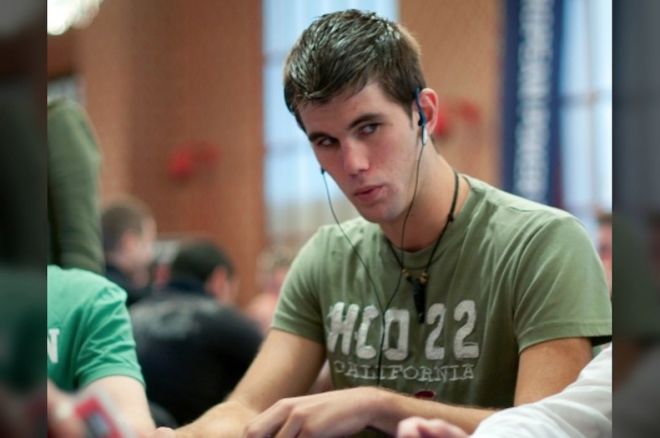
“How do you know you’re the most in-demand tournament coach?” That was the question my brother-in-law asked me the other day after seeing this pompous proclamation on my website.
“Nobody else is doing it,” I answered without thinking.
He laughed heartily at what he called my modesty. I didn’t think I was being modest. I was gloating. I’d found an unused niche and stuck to it. Assassinato Coaching now has over 600 independent clients, and some of the biggest backing houses have us on speed dial.
That’s not something I envisioned when I first got into coaching. I had noticed how in all other professional forms of gambling, including the stock market, there is a huge sector devoted to private strategic consultation. I figured something similar would happen sooner or later in poker, so I devoted most of my time over the last few years to building that up.
“What about people who say you’re not being as competitive in the actual game anymore?” he asked me as a follow-up. I admitted that that was a pretty good question. For once, I tried not to be an ass when I answered, like I purposefully was in my rap battle.
The question has always rubbed me the wrong way, so I’d never given it much thought. This was the first time someone in my family had asked me, so I knew he wasn’t trying to say underhandedly, “I don’t believe you’re good enough. You don’t fulfill my expectations.”
With my salary from private backing houses and personal clients, I could stop playing poker entirely. The business has given me the luxury of not worrying about my day-to-day earnings. As such, I’ve spent more time exploring new concepts in the toughest and most expensive online tournaments, and I’ve played more live and on some of the fringe networks to try out ideas on more passive players.
If I lost a small amount, I’d be fine with it, but blessedly I’ve profited. It is not what I made back when I could devote 60+ hour weeks to the craft. However, I have a responsibility to update my lectures and strategic concepts for my clients, so in the 20 hours I get to play each week I really have to be exploring and noting changes.
Sometimes my competitive side wants to show everyone who is the boss, so I’ll play every high-stakes WCOOP event for weeks, but that kind of competition is not as enjoyable as competing against yourself. The games are extremely competitive these days. There are so many talented people working in no-limit hold’em. It’s harder to manufacture edges, especially in MTTs, where your plays are limited by your stack size.
Many people approach me who only play high stakes. They wonder what’s wrong with them, why they’re not making the money their friends are enjoying. Many times they indeed need to work on their games, but it’s also often the case that they just haven’t been lucky. These days, you have to run really well in high stakes to get past all the talent. Individual flips and coolers are of greater importance now, because more regulars than ever will block your skillful accumulation tactics.
Does this mean there’s less money to be made at poker? Absolutely not. It just means that in order to get it now you can’t only be competing against other people. You also must be trying to better yourself every day. You can’t care what people are thinking about you, either, as you work to improve your game.
Many high stakes regulars play the biggest games just to stay in the rankings, as if being listed there is a way of saying “Look Mom, I made it! I travel and play poker now!”
It surprises many people to hear the majority of my highest-earning clients do not play at the highest stakes. Many play mid-stakes at odd hours, and on networks with which others wouldn’t bother.
Let’s say the high-stakes regular’s salary is $100,000 a year (which it isn’t, but let’s pretend it is). Of those players, 90% of them have to be backed to stay in the game, because the streaks are so severe now. That means they’re really making (say) $50,000 a year. But wait — they have to pay all their own travel expenses to get to these baller $10Ks, too. Between food, lodging, and airfare they’re easily spending $10,000 even to play just a few events. That puts their highest average salary at $40,000.
Meanwhile many 100NL grinders can make $40K a year with their eyes closed, especially if they’re getting rakeback. In fact, many of my mid-stakes tournament grinders are making almost twice that a year.
What’s their secret? Many of them start with much less talent than the high stakes grinders. Other than practicing smart table selection (an obvious necessity), it just comes down to discipline. They put in the work, day in and day out, and they seem really to appreciate the benefits of doing so. They don’t make adjustments their friends advocate because they are part of the current trend. They make their own decisions for themselves. They don’t grind for props. They’re looking for a career, in a home of their choosing, without a boss or other restraints holding them back.
Consistency is what you’re aiming for. You want to have grit over everything. Pretty much every study has found that endurance is a greater predictor of success than IQ or anything else. This truth is confirmed if you study the greats in practically any discipline.
No one practiced more than Kobe Bryant or Michael Jordan, and there’s a reason Allen Iverson never comes up when people discuss “the best ever.” Andre Agassi was considered a flakey underachiever until his trainers and Brad Gilbert taught him to get to the court every day.
My favorite advice related to this topic came from Jerry Seinfeld, a.k.a. the world’s highest paid comedian. When once asked how to become a better comic, he answered flatly, “write better jokes,” and as further explanation added “the way to do this is to write every day.” Mr. Seinfeld then showed his questioner — a fellow comic — a calendar. He said, “every time you write for a certain period of time, put an X. Your only job is to not break the chain.”
He said nothing about results. It was just practice and discipline he was recommending.
I literally do not know anyone who studies poker daily who isn’t a formidable foe. I talked to an Estonian kid the other day who’d been in med school when he first got into poker. He had barely been playing poker for two years, and after putting in tons of hours he easily knew more than I did after eight. Phil Ivey wasn’t in this kid’s zip code at year two.
Yeah, you read that right. Remember this: Phil Ivey was a losing player his first two years of playing cards. He broke even during his third. Michael Jordan got cut from his high school basketball team. While J.K. Rowling was a single mother subsisting on social security, Harry Potter was rejected 12 times. Soichiro Honda was turned down for a job at Toyota. Bryan Cranston didn’t have a hit acting role until he was 44 years old, and he was rejected for three other jobs the week he got his hit gig.
You have time. Just play and study every day. Have fun with it. Senior citizens playing chess in the park don’t do it for the money. Channel their love for the game. Phil Ivey has said of poker, “I used to think it was an easy way to make money. Once I started playing for love of the game, things really changed.” If you have a real job and can only give an hour a day the game you love, that’s fine. Spend 30 minutes on the felt, 30 more minutes reading up.
Your only goal is to be better than who you were yesterday. Remember that. Write it on sticky notes and put it on your computer, your dashboard, and your bathroom mirror. Don’t get caught up in what this guy said, what one of your “friends” did, or whatever is the latest scandal. You don’t want to be a fan forever, so stop acting like one.
Good luck to all of you.
This article is brought to you by Assassinato Coaching and CardRunners. Sign up now to take advantage of an exclusive deal for Alex’s followers. With bonus code FREEMONTH you’ll get two months access to CardRunners for just $30, a $130.00 discount! That is more than 80% off of what you’d usually pay to see over 2,000 training videos from the best minds in poker today!
In addition, don’t miss the recordings of Alex’s private webinars You Flat Too Much and Why Pessagno Is Right. The hardcore should also be sure to check out Alex’s live sweat series, where Alex recorded every hand of his recent WCOOP with live commentary. See every hand of his $215 Second Chance Win!
To receive every new article of Alex’s, please write in to [email protected] and ask to subscribe to our mailing list. For private lessons, consult this link. Listen to Alex’s free podcast at Oneouter.com, and follow him on Twitter @TheAssassinato and Facebook.

